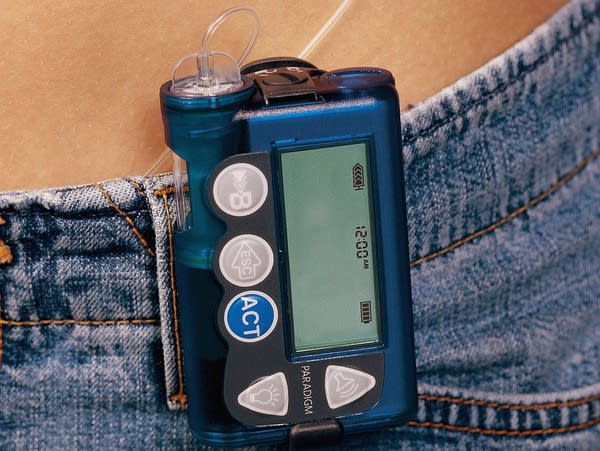Consumer groups unhappy with bill easing medical device FDA review process

Congress is considering some legislation of great interest to Minnesota's medical device industry, which employs some 35,000 people in the state.
Device companies say the legislation will speed up the lengthy process of federal approval required to bring the new life-saving devices to market.
But some consumer groups argue that Congress is missing an opportunity to strengthen a review process for the Food and Drug Administration that they say is too lenient.
The legislation passed the Senate last week and may go to a vote this week in the House.
Create a More Connected Minnesota
MPR News is your trusted resource for the news you need. With your support, MPR News brings accessible, courageous journalism and authentic conversation to everyone - free of paywalls and barriers. Your gift makes a difference.
Sen. Amy Klobuchar, D-Minn., wrote many of the bill's provisions. Both she and fellow Minnesota DFL Sen. Al Franken voted in favor of its passage.
"One of the things we've done here is to give the FDA resources so that they can get that review process going faster by having adequate staff," she said. "Safety regulators and the industry agreed that they would be able to do a much better job if they had the resources they need."
Device companies complain reviews have been taking longer and longer.
"There were literally five-, six-year delays and that's just not what should be happening," Klobuchar said. "And the FDA knew they had issues in terms of delays. They admitted it."
The legislation more than doubles the fees medical device and drug companies pay the Food and Drug Administration for safety reviews. These med-tecj companies will pay the agency about $600 million over five years, to fund an increase in review staffing.
Shaye Mandle, vice president for government relations at LifeScience Alley, a trade group for Minnesota's medical technology firms, says a better-staffed FDA could carve months or even years off the review process for new pacemakers, stents, insulin pumps and other devices.
"This package gives us some more, not guarantees, but more specific goals around the FDA making decisions up or down on our products in a more efficient manner," Mandle said, adding that those decisions have a broad economic impact.
"The quicker our companies can get their products into the hands of patients and physicians, the quicker our businesses can continue to grow and flourish, which is good for Minnesota's economy," Mandle said.
The three biggest medical devices companies operating in Minnesota --Medtronic, St. Jude Medical and Boston Scientific --declined to comment for this story.
But Steve Ubl, CEO of AdvaMed, which represents over 1,300 medical device companies, says slow FDA reviews have discouraged investors from putting money into small med-tech companies with promising products. And he says companies frustrated by slow reviews in the U.S. have chosen to launch and commercialize new products in Europe and other markets, where he said reviews are faster.
"That means that American patients wait for those break-through technologies and patients also die waiting for technology today. And that shouldn't be the case," Ubl said.
Some patient and consumer advocacy groups think it's great the FDA will get more money to perform reviews but lament Congress is missing an opportunity to make the process more thorough, starting with requiring more clinical trails of devices before they go to market.
Dr. Michael Carome, deputy director of the health research group at Public Citizen, said most medium- and high-risk devices, including many devices that are permanently implanted, come to market through a process that doesn't require any testing in a clinical trial.
"The manufacturer just simply needs to show their newly proposed device is substantially equivalent or similar to a device already on the market," he said.
Another patient advocacy group argues a more stringent reviews would reduce the number of devices pulled from the market after it's determined there's a reasonable chance they could cause serious health problems or death.
Medtronic, St. Jude and Boston Scientific have all had such serious --so-called class 1-- recalls for their products. But the FDA says that in recent years, fewer than one in 2,500 devices has been subject to a class 1 recall.
Diana Zuckerman, president of the National Research Center for Women & Families in Washington, D.C., said that ratio could be even smaller with more thorough pre-market reviews.
"We had hoped that the House and Senate would agree medical devices that are implanted and that our lives depend on would always have to be tested in clinical trials and inspected prior to be being sold," she said. "But medical device companies opposed this and it did not see the light of day."
LifeScience Alley's Shaye Mandle says the review process is plenty thorough and there's no evidence of rampant use of unsafe devices.
"This is technology that's clearly on the leading edge of human knowledge," he said. "It is impossible to eliminate all risk from this. If what you want is a system that has no risk, then we can stop submitting and approving products altogether."
Most senators clearly agreed with the industry's perspective. The Senate approved the FDA funding bill 96 to 1.
